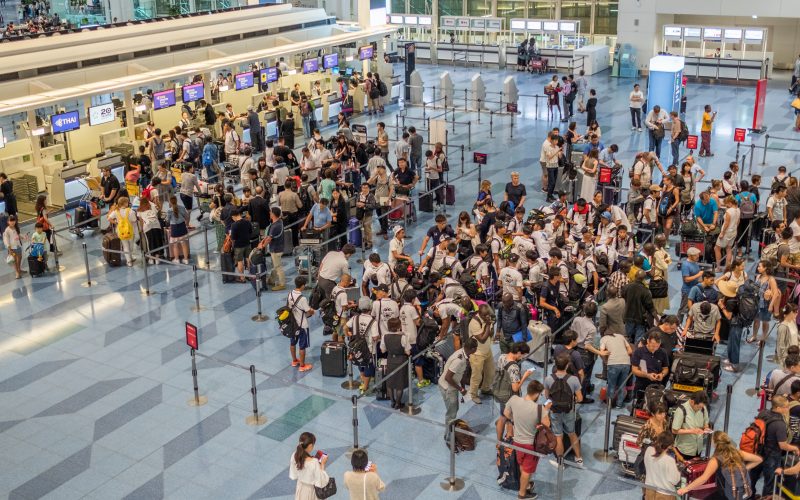Want to know why your flight was delayed and your baggage lost? Blame capitalism. Ganesh Sitaraman is a law professor and director of the Vanderbilt Policy Accelerator for Political Economy and Regulation. He joins host Krys Boyd to discuss why he feels unregulated capitalism created a handful of airline competitors – all too-big-to-fail and receiving government funding – and why he feels improvements are possible. His book is “Why Flying is Miserable: And How to Fix It.”
Airlines don’t care as much about service anymore
By Shaunessy Renker, Think Intern
Every time we board an airplane, it seems as though the legroom has gotten smaller, snacks and drinks have become more sparse, not to mention, the cost of a checked bag today is five times what it was in 2008. People generally love to travel, but they dread the trip. We reminisce over the days of airlines like Pan American, when airborne lounges and wide seats were the norm.
A lot of these changes stem from the move to deregulate the airline industry. Before then, government involvement and investment played a major role in the rise of the airline industry.
“They made sure that airlines would be able to cover all of their own costs and get a return on their investment,” says Ganesh Sitaraman, author of Why Flying is Miserable: And How to Fix It.
But as fuel prices rose and business conditions evolved, some believed deregulation could be their solution and prevent loss of revenue. This decision worked back then but Sitaraman says it’s failing us now.
There’s a benefit to being a large business, but you need a large network to be successful. For businesses in industries that are essential to the public—such as railroads, buses, telecommunication, airlines, postal service, banking, etc.—regulation is essential so that monopolistic exploitation, abuses, loss of service to rural areas, and price gouging can be prevented.
In the 20th century, consumer prices for airlines were mainly based on distance, not location. It didn’t matter which city a passenger was traveling to, only how far. This ensured that flight services reached all areas of the country and didn’t prioritize more populated cities. Because we have now set prices to which locations have the most volume, we end up with cheaper fares to urban areas and expensive fares to rural areas.
“If you have the system where prices are regulated and set by distance, then how are airlines supposed to distinguish themselves? Well, they have to improve service,” Sitaraman says. “In a world where we get rid of that system—where airlines can fly wherever they want, whenever they want and charge whatever they want—the incentive for the airlines to make money is to shrink the seats and charge you extra to check your bag.”
Before deregulation of the industry, airlines could not compete with their pricing, they had to compete with their service and try harder to please passengers. But now, priority has shifted and the industry has seen a rise in benefit programs, boarding systems, and seat volume in planes.
“We’ve lost what it means to think about structures and incentives…it’s a very different system than we used to have,” Sitaraman says. “That’s a key part of how we need to think about making change going forward, which is to look deeper at structures and incentives, not just at the specific ills that we find bothersome.”





